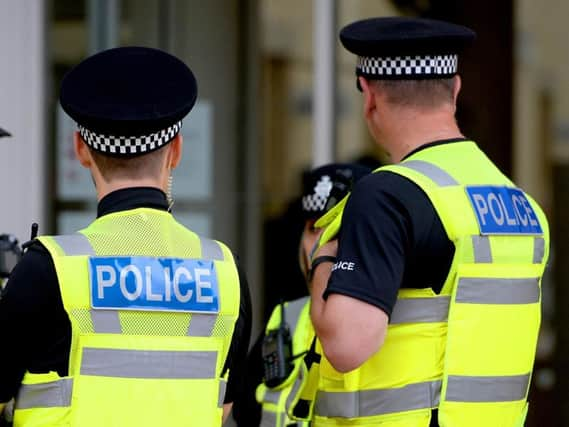Nearly 20,000 charges for assaulting emergency workers in first year of new law - as West Yorkshire attacks rise


Between November 2018 and 2019, nearly 20,000 offences were charged under the Assaults on Emergency Workers (Offences) Act, the Crown Prosecution Service (CPS) said.
Three-quarters of the offences prosecuted were assault by beating, while a review sample revealed nine in ten assaults were against police officers.
Advertisement
Hide AdAdvertisement
Hide AdThe legislation is not having the desired affect, said the chair of West Yorkshire Police Federation, as assaults on officers in the West Yorkshire force continue to rise.
The CPS said police attackers were almost always intoxicated by alcohol or drugs, and were being arrested for an unrelated offence.
Spitting was a common act, but violence against emergency workers also included kicking, punching, head-butting, slapping and biting.
Max Hill QC, director of public prosecutions, said: "Emergency workers provide a vital public service, the fact they endure vile abuse like spitting and even physical assault in the course of their duties is appalling and unacceptable.
Advertisement
Hide AdAdvertisement
Hide Ad"These attacks must never be considered as 'just part of the job'.
"These are serious crimes and it is encouraging to see our prosecutors have used the new legal powers to bring offenders to justice."
Halifax MP Holly Lynch was responsible for successfully bringing out the new legislation designed to protect emergency service workers after two years of campaigning.
The law was first introduced as a Ten Minute Rule Bill in 2016.
Advertisement
Hide AdAdvertisement
Hide AdAt the time the law was passed, she said:“I hope the new law will form a deterrent, and help bring about a cultural change, so that assaults are better reported and no longer considered just ‘part of the job’ for our emergency service workers.”
Between November 2018 and 2019, 19,771 offences were prosecuted, of which 14,372 were assaults by beating, 5,362 common assault, 36 attempted assaults and one aiding/abetting an assault.
The CPS said the figures, based on its internal data, related to the number of offences charged rather than individual defendants.
Ministry of Justice figures for 2018, based on the first cases to go through the courts, showed a conviction rate of 90%, the CPS said.
Advertisement
Hide AdAdvertisement
Hide AdThe Assaults on Emergency Workers (Offences) Act, which came into force in November 2018, was introduced in response to an increase in assaults on emergency workers.
Staff covered by the legislation include the police, prison officers, fire and rescue service personnel and NHS workers.
Mr Hill said that after being made aware of police concerns during the first year of the new legislation, the CPS had updated legal guidance to "strengthen our approach to these appalling offences".
The new guidelines include ensuring prosecutors seek the maximum sentence in court.
Advertisement
Hide AdAdvertisement
Hide AdThey also impress the need to pursue a charge even when more serious offences have been committed, to ensure a defendant's conduct is reflected on their criminal record, the CPS said.
Mr Hill added: "We want to send a strong message that this deplorable behaviour will be met with the full force of the law."